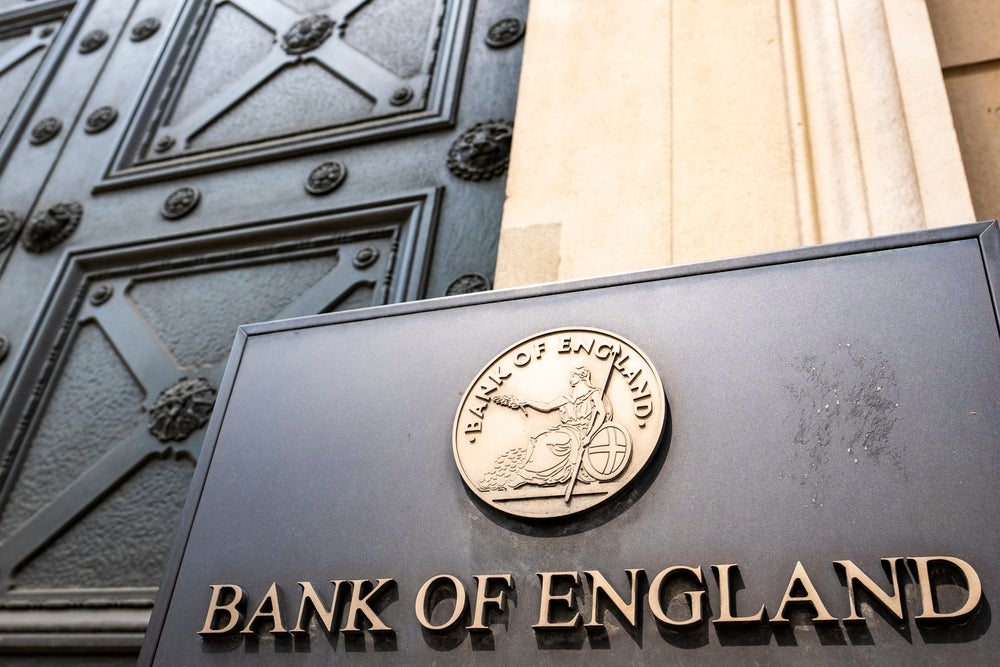
The central bank’s over-regulation of innovative financial institutions – like challenger banks and non-banks – is limiting the UK’s post-recession economic growth. The Bank of England is guilty of being over-cautious, hampering innovation, development, and growth across the modern financial services landscape. And the Bank of England too readily accepts financial services as the root cause of its economic problems.
These arguments are advanced by Yerbol Orynbayev, an independent financial services consultant based in Washington DC. Prior to his consultancy career, Orynbayev served as the Deputy Prime Minister from 2007-2013 and Aide to the President on economic policy from 2013-2015. He also worked as the Governor of the World Bank on behalf of Kazakhstan, and helped to steer the nation out of the Financial Crisis in 2008. He was chairman of First Heartland Securities and held a number of Board-level roles at the National Bank of Kazakhstan.

Access deeper industry intelligence
Experience unmatched clarity with a single platform that combines unique data, AI, and human expertise.
Hesitancy to cut interest rates impacts economic growth
He also calls out the Bank of England’s recent reluctance to cut interest rates. The hesitancy to cut rates is a surefire sign that they need to shift their attitude to risk. Indeed, Orynbayev says that the economy’s short-term growth depends on it. The intervention from the former Deputy Prime Minister of Kazakhstan follows reports of Revolut’s wait for its UK banking licence. This relates to demands from the UK’s Prudential Regulatory Authority (PRA) over the past three years despite internal confidence that it would be granted quickly.
Revolut licence application: ‘PRA is over-cautious’
Yerbol Orynbayev tells RBI: “Under the never-ending demands of the PRA, Revolut’s struggles to obtain its banking licence certainly shows one thing. Along with the FCA, the Bank of England is incredibly over-cautious. Revolut has spearheaded innovation across FX services. A banking licence would provide them with access to other services they could dramatically improve. The Bank of England is missing a trick. They’re hampering innovation.”
He argues that a UK banking licence would enable Revolut to operate more efficiently and effectively in the country. It could offer a broader range of secure financial services to their customers. But the year-long delay has prevented it from innovating in a number of areas, hampering its development and effective offerings in the UK.
Non-bank financial institutions ‘unfairly targeted’
Meantime, non-bank financial institutions, including insurance firms, asset managers, pension schemes, and venture capitalists, have also been targeted. According to the Financial Stability Board, NBFIs hold just over 46% of global financial assets or approximately $218trn. Moreover, they have contributed to almost all of the £425bn net increase in UK business lending since 2008.

US Tariffs are shifting - will you react or anticipate?
Don’t let policy changes catch you off guard. Stay proactive with real-time data and expert analysis.
By GlobalDataFearing their influence could leave the UK vulnerable to a credit crunch, the Bank of England’s Deputy Governor Sarah Breeden has recently outlined the central bank’s intentions to build a proactive case for regulating non-banks. Orynbayev acknowledges the need for this increased oversight. But he is wary about punishing these financial institutions for an issue that arose from then-PM Liz Truss’ tax cuts in 2022.
Current regulatory sentiment dates back to disastrous Truss premiership
Orynbayev says: “Liz Truss’ tax cuts in 2022 sparked this whole regulatory movement.
UK government bonds were manically bought, yields rose, revealing vulnerabilities across the UK’s vast network of NBFIs. To boil it down to its very core, the Bank of England’s calls for regulation against NBFIs have stemmed from a critical political error.
“But this is not a surprise. Since the 2008 financial crisis, regulation against financial institutions has tightened. The spotlight on financial services has only shone brighter and harsher. The Bank of England needs to be wary of this approach. Reactive regulatory punishments like this could hamper the growth of the UK’s wider financial services landscape.”
Rates policy overly cautious
Besides financial services, the Bank of England has also been overly cautious with its rates policy. Huw Pill, the chief economist at the central bank, recently warned that a cut to UK interest rates is still “some way off”. This is dulling hopes for increased business activity and economic growth. Orynbayev believes the Bank of England’s hesitancy is impacting not only financial services, but also the country’s economic potential.
Orynbayev concludes: “Huw Pill’s recent comments on cutting interest rates is indicative of the Bank of England’s wider issue. Following months of economic troubles, the Bank of England should be itching to reignite the UK’s business activity. And, as a result, supercharge the economy. But they’re doing quite the opposite. They’re twiddling their thumbs.
“The UK’s financial services sector has been the brunt of the central bank’s caution. And, for a country that has produced groundbreaking challenger banks like Monzo and Starling, this friendly fire is only going to put a ceiling on innovation. It leaves its financial services sector in cobwebs.
“The Bank of England now has an opportunity to dictate the future of the UK’s thriving financial services ecosystem and the economy’s post-recession recovery. But, to ensure both, they need to shift their attitude. They can’t shy away from risk.”







